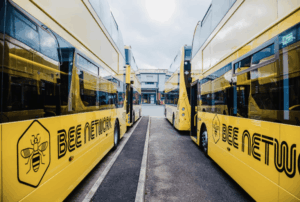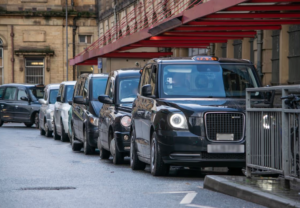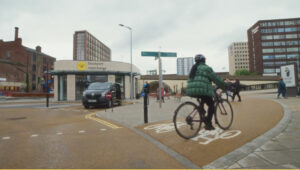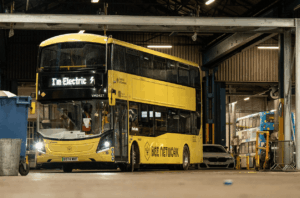Andy Burnham, the Mayor of Greater Manchester, has used his keynote speech at the Interchange 2024 conference to promote the coming years as a “golden age of public transport” in the North-West of England. Provided that Manchester’s much-vaunted Bee Network incorporates trains by its intended (and stated) target of 2030, he said the city will be home to an all-encompassing London-style multimodal transport network and payment system.
“As we complete the bus franchising by January next year, it will then all be about bringing rail into the Bee Network,” he explained. “And that’s exciting. I don’t see how you can properly integrate without having control over the fare box for all modes. You have to then have control of that fare box so you can offer much for people who are prepared to change their behaviour. You offer them a chance to make significant savings on the cost of their travel.”
The Bee Network is an integrated transport network operated by Transport for Greater Manchester comprising bus, tram, cycling and walking routes that was initially launched in September 2023. TfGM is aiming to have the full network operational later this year. The yellow and black liveried Bee Network will give Greater Manchester a tap-in/tap-out, London-style transport system with the aim of encouraging more people ditch the car and use public transport.
“We will have an all-electric bus fleet in Manchester before the end of this decade, our trams already run on renewable energy and we will have the first zero carbon public transport system at street level. And it’ll be a very well used public transport system with environmental benefits that improve people’s health and improve people’s lives. To any other region debating going down a similar path to Manchester, I would say absolutely do it.”
Burnham’s obvious enthusiasm for the Bee Network, that received £1.8 billion of Treasury Funding in 2021, is predicated on the theory of “build it and they will come”.
“We’re looking at implementing a Hopper fare. These are the kinds of things you can do when you when you’ve got control of the fare box,” he said. “And obviously when those kinds of proceeds are coming back, you can build a higher patronage through these incentives that you put out there in the first place.”
Burnham admitted that the city had to do a fair amount of introspection to ensure that the “golden age of transport” did not turn out to be merely an appealing soundbite. Learning from previous mistakes was one such inward-looking revelation.
“We had to look at ourselves in the mirror and asked ourselves if managed our highways as well as we might have… and the answer to that is no. There is absolutely no doubt in my mind that we’ve done the right thing and we are ready to help any other city or region on this journey, he added.
“I think the Liverpool City Region will be next as Mayor Rotherham has already taken that decision, I think West Yorkshire will follow not long after, and I think South Yorkshire will go soon too. The North East will follow suit, I am sure. This will be a golden age for public transport in the North of England, as we all really work together and collaborate.’
With, as he put it, the “hurt” of the cancellation of the Northern section of HS2 still being keenly felt, Burnham’s ebullient keynote at the Manchester Central Convention Centre was lapped up by a largely Northern audience, eager to hear of plans to ensure their region isn’t left behind as a result of a political tug of war.
“I would say get with this revolution, everybody. It’s happening, it’s positive,” insisted Burnham. “It’s time to get get behind it. And I would say to the rail industry ‘please get behind it as well’. The danger, if you look around our city with the tram system that we’ve got and the new electric buses that are arriving, is if the rail sector doesn’t move more quickly, in terms of reform, the stations will look like outliers in a modern city, separate from the modern integrated system. And that’s not a good place for the rail industry today. And I say that in the spirit of being constructive. Please get with this and work with us to the same timetable, otherwise people’s trust in the trains, which is pretty low at the moment, will get even lower if people can’t see how rail is also part of this future vision for public transport.”
Another of Mayor Burnham’s visions is a radical reworking of Piccadilly Station.
“Go to any other city like this one in Europe, and you will find an underground system. And when you build underground systems, you preserve land for economic development. If you want a King’s Cross of the North, the only place you can have it will be here in Manchester, at Piccadilly. We can’t do the typically British thing of not funding it properly as otherwise it will run out of steam. We need to think of a new funding model for public transport outside of London,” he concluded. “We can’t have a North-South corridor and an East-West corridor? Why does the North have to choose? Perhaps the painful times we’ve lived through are beginning to change the debate? This is a really exciting time.”
(Picture – Highways News)























